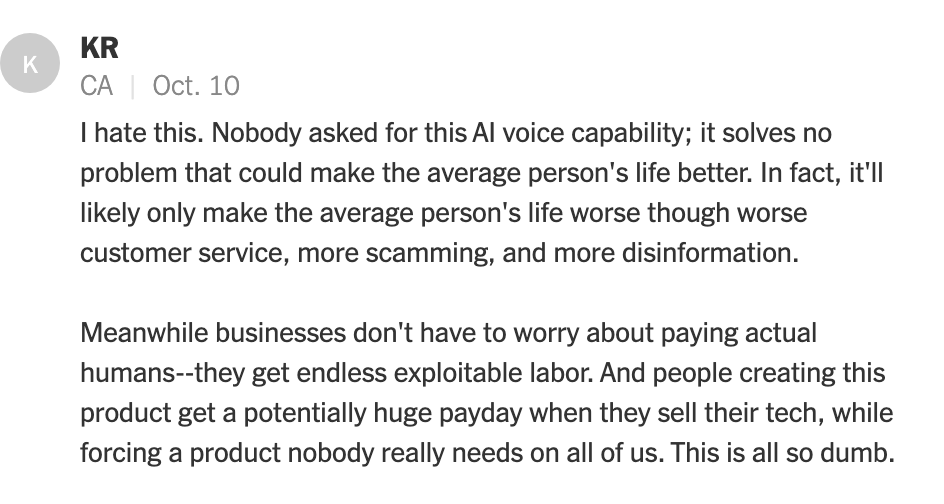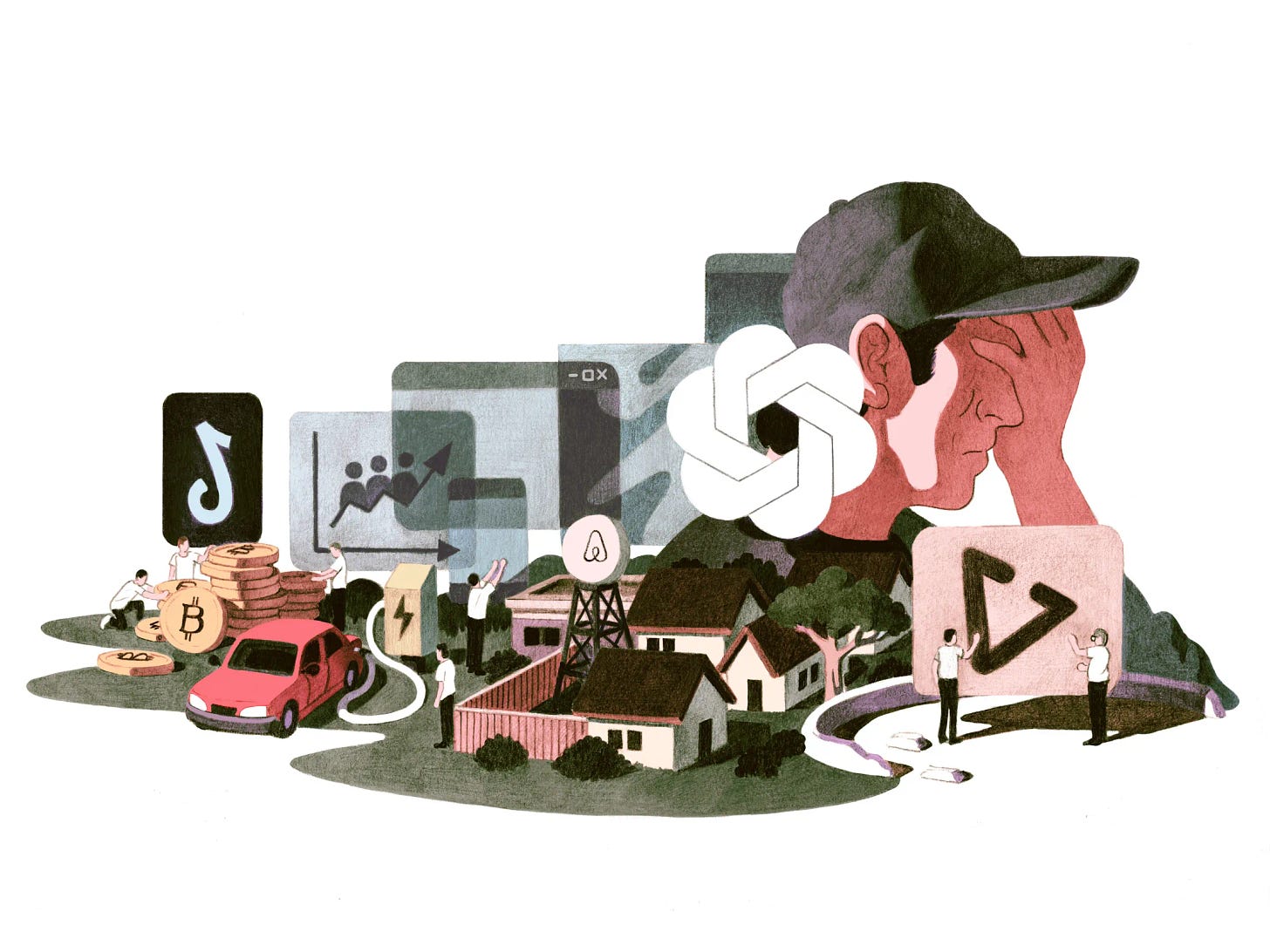Voice agents in the NYT, and the twisting tale of a lawsuit over AI origins
Two Shell Game-adjacent articles, in other venues.
One of the things that Shell Game-interested people often ask me—as someone who has deployed an AI agent of myself, and thus is a stand-in for a possible future in which more people experience them—is how it has changed my relationship to the world, whether in friendships or otherwise. In part, they just want to know if the colleagues, friends, and family on whom I inflicted the voice bot are angry or otherwise upset with me. On that front, I have been relieved to find that they are not. Mostly, they got a kick out of it, although some still don’t trust that they’re getting the real me on the phone when they call.
But often people also want the answer to some version of: In the face of this technology infiltrating our world, how should we respond? I tried to answer this, at least in brief, in an opinion piece for The New York Times this past week. The op-ed won’t be revelatory to anyone who has heard the show, and I won’t claim any mind-bending conclusions. But for me the answer at least starts with some combination of trying to understand the technology, figuring out what parts of our lives we don’t want it to touch, and then orienting more towards those parts ourselves. In one form, it amounts to: The more time I spend immersed in the wold of conversational voice agents, the more time I want to spend in real, face-to-face conversations, with actual humans. And not just face-to-face conversation, but the kind that can’t be replicated by my small-talk-happy bots.
It’s been interesting to see the reaction to the op-ed, which naturally comes from a lot of people who haven’t listened to the show. There’s a modern axiom that writers shouldn’t read the comment sections on their stories (when those sections still exist, or alternately, the reaction from random social media accounts). But I appreciate having a window into how people responded to the ideas in the op-ed, and the show. Scrolling through them, you can feel the anxiety that voice agents, voice clones, and AI in general generate in a lot of folks.
The other thing that becomes clear on even a quick scroll is that the readers believe that my friends and family should in fact be angry! Indeed, that they should have thrown me over the moment I sprung an AI on them.

When I shared screenshots of this and many similar comments on a group chat with the very friends featured in the show, Ali (of episode 6), helpfully replied “I just realized you’re a piece of shit.” Chris (episode 5) offered: “Gregory is actual my AI commenting agent.” Fair enough.
Deserved needling aside, we obviously felt this kind of ambient anxiety—and occasional anger—around AI voice agent deployment while we were making the show. The question for me is always: How different and widespread is this sense of unease, even foreboding, than it was for the arrival of the telephone, or the TV, or the Internet. It’s easy to find writing from those eras—such as my all time favorite news article, “This Machine-Made World Conquers One More Rebel”—that sound as angsty as anything you will hear about AI today. Even in my lifetime, with the now-quaint arrival of answering machines, my memories still echo with the sound of people complaining about having to listen to a recorded voice, and then speak into a machine. Maybe not to the level of “if you were my friend and I had to ‘talk to you after the beep,’ it would end our friendship.” But not far off.
One possible difference, though, may be the amount of skepticism people already have about the technology industry producing these innovations. After the various ways that social media has soured over the past decade, and the seeming indifference of the tech moguls behind it to its effects, there’s already a growing distrust of the smiling figures offering us the latest disruption. And that brings me to the other new article I have out this week, in Bloomberg Businessweek, about OpenAI’s lawsuit against an obscure entrepreneur over the trademark for “Open AI.”
It was many months in the making, a long and winding tale, and I won’t try and summarize it here. But it’s the story of who wins and loses in the world of technology startups, and what values prevail when world transforming innovation becomes winner take all, losers go home. If you liked Shell Game, I think you’ll find it intriguing. It’s a different story of things not being what they at first seem.
Shaken inside out into the hurly-burly,
Evan








Shell Game is my favorite podcast in a very long time. Thanks for being the whipping boy for people who don't want to think about the nuances of technology.